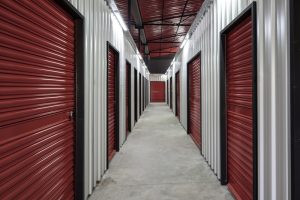
Choosing the right plumber is crucial for any repair or maintenance in your home. It’s about asking the right set of questions to ensure they’re up to the task. This way, you can rest easy knowing your plumbing system is in good hands.
Validate Their Credentials
Cultivating trust between yourself and your plumber begins with an examination of their professional credentials. When you confirm that the plumber holds a valid license, it provides comfort in knowing that they possess the necessary knowledge and skills.
These qualifications are not arbitrary; they are recognized by the plumbing industry and standards authorities. This creates a baseline of trust and quality for the services you are about to receive.
Importance of Insurance for Plumbers
Another crucial component of a plumber’s credentials is their insurance. Having adequate insurance coverage is not just a tick in the box; it acts as a safeguard for both parties involved.
It means that in the unfortunate event of an accident or damage occurring during the project, there is financial protection in place. This kind of protection offers reassurance and reflects the plumber’s responsibility towards their work and clients.
-
Protection Against Accidents: In your conversations with the plumber, it is entirely appropriate and prudent to ask, “Do you carry insurance to cover any accidents or damage?” This question gets to the heart of preparedness should things not go as planned. Ensuring that the plumber has the right insurance means that you are shielded from unforeseeable costs and complications.
-
Understanding the Insurance Policy: Knowing that there’s insurance is one thing, but understanding what it covers is another layer of security. When you ask a plumber about the specifics, such as, “What are the details of your insurance policy?” you gain insight into the extent of the coverage. This will inform you just how protected you and your property will be during their work.
By inquiring about their plumbing license and ensuring it is currently valid, you are doing your due diligence. It’s important to not feel shy about asking, “Can you show me your plumbing license?”
Furthermore, to make sure all of their abilities and learning are up to date, you may also ask, “Is your license up to date?” These questions will help confirm that the person you are hiring is truly qualified to handle the plumbing tasks at hand.
Experience and Area of Expertise
A plumber’s experience can tell you a lot about their ability to handle your plumbing issue. Plumbers often specialize, and some might be better suited for installations, while others excel at fixing leaks or clogs. Knowing their area of expertise ensures the plumber is well-equipped for your specific problem.
Cost is a key concern. You’ll want an accurate estimate that includes all the costs. It’s also important to understand their work guarantees. This transparency helps in avoiding surprises when it’s time to pay the bill.
Availability and Response
Plumbing problems don’t wait for a convenient time. Learning about a plumber’s availability can save you from a lot of trouble, especially if you face an emergency. A delayed response can turn a small problem into a disaster.
Inquiries About Specific Concerns
If you have concerns about specific products or fixtures in your home, it’s wise to discuss them directly. For instance, many people use flushable wipes, but they may not always be safe for plumbing systems. A plumber can give guidance on this. In fact, a query like “can you flush flushable wipes” is a great example of this.
Parts and Components
Good plumbing isn’t just about skill—it’s also about using quality parts. It’s essential to know if the plumber is using parts that last and if there are options available that match your needs and budget.
-
What brands or types of materials do you use for repairs?
-
Can you offer alternatives if I have a limited budget?
For instance, if water treatment is a topic of conversation, you might want to ask, “what is the best water softener” for your specific water conditions, which will inform you about the range of solutions available.
Permits and Compliance
Your plumbing work may need permits, and ignoring this can lead to fines or legal issues. It’s essential to hire a plumber who knows how to handle these administrative tasks.
-
Will you take care of getting the necessary permits?
-
How do you ensure the plumbing work meets local regulations?
Good plumbers will manage the paperwork so you don’t have to worry.
Cleaning and Disposal
Working with a plumber who cleans up after themselves means one less headache for you. Make sure they handle debris and old parts professionally.
-
Do you clean up once the job is done?
-
How do you dispose of any old parts or materials?
Maintaining a tidy workspace is part of a plumber’s professionalism. To learn more about it, you can contact a professional plumber near you.
To End
Hiring a skilled plumber comes down to asking the right questions and understanding their responses. They should be willing to communicate openly, provide clear explanations, and offer solid assurances about the quality of their work. By doing your due diligence with these questions, you’ll be well on your way to finding a plumber who can handle your needs and give you confidence in the safety and functionality of your home’s plumbing system.








